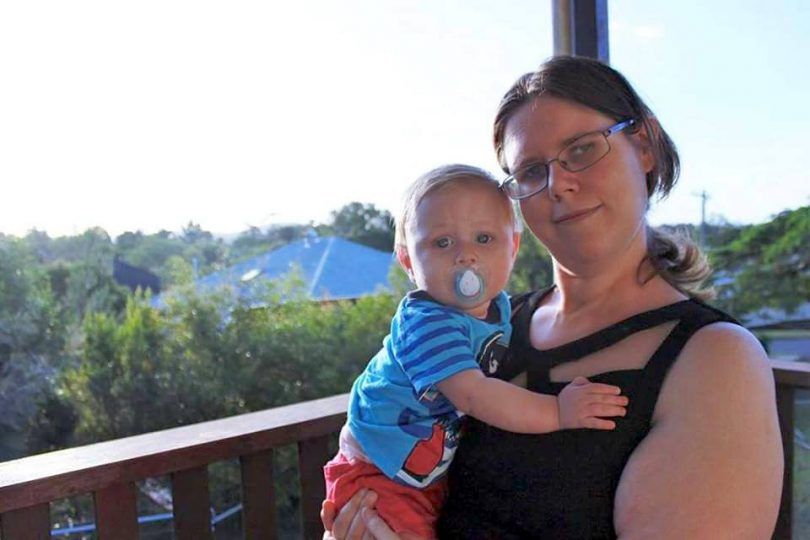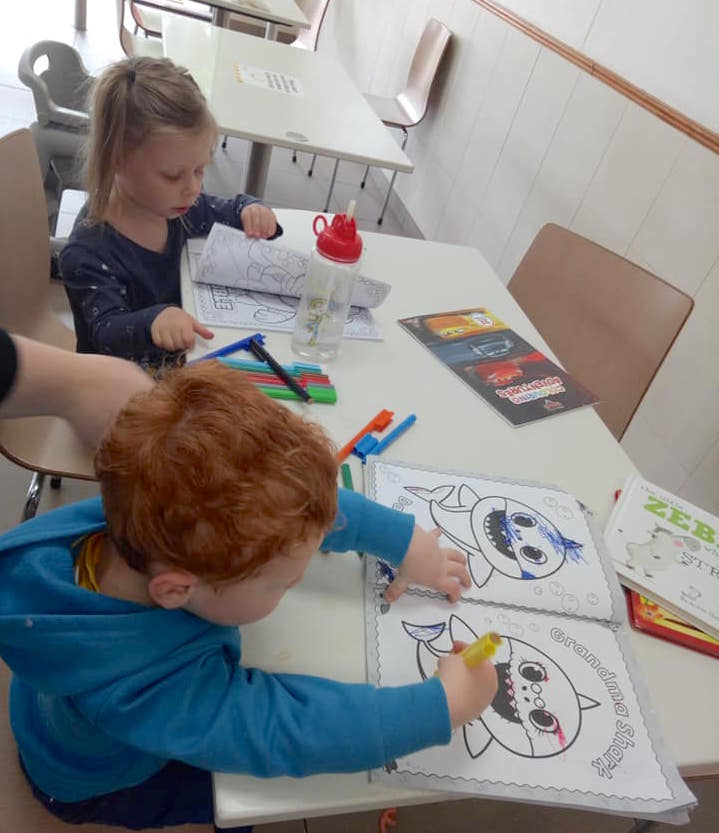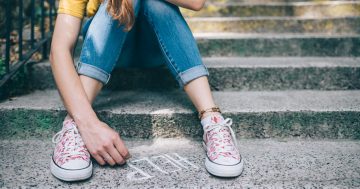
Women with Disabilities ACT project officer Amy Fahey and her son Toby. Photo: Supplied.
How do you teach your children to talk when you are a parent with a hearing impairment? Or how do parents with a disability cope with the daily challenges of parenting?
“People often ask us how hard it is to be a parent with a disability,” says project officer for Women with Disabilities ACT Amy Fahey.
“What we talk about as a group is how our children are really resilient and independent because I have a disability.
“We want to change the rhetoric and the discourse around parenting with a disability and support each other.”
About 25 people in Canberra have identified themselves as parents with a disability, but Amy says she wants them and others to know there is a peer support group and project being funded by the ACT Office for Women to help parents with a disability and those wanting to become parents.

Brooke-Marie Love’s son Nathaniel and friend Penny. Photo: Supplied.
Brooke-Maree Love lives with a hearing impairment and faces the daily challenges of parenting Nathaniel, aged two, and Alexander, seven months, with the additional challenges of helping her children learn to talk.
She says Nathaniel is behind in his speech but has learnt other ways to communicate with his mum, such as taking her hand and pointing to what he wants.
To help have her own needs heard and link with other parents with a disability, Brooke attends the weekly support group run by Women with Disabilities ACT.
Brooke has begun attending the weekly peer support group meetings and says the group is a great way to meet other parents who understand the challenges of parenting with a disability and give her children more opportunities to socialise.
Acting chair of Women with Disabilities ACT Kerry Marshall said combatting the double-whammy of isolation and the COVID-19 restrictions has made it a testing time for anyone with a disability.
“We understand that it can be an isolating experience as a parent with a disability, so we want to bring people together to share experiences and support each other. We’ll definitely be looking to expand the program, especially with some of the initiatives that we’ll be wanting to pursue,” Kerry said.
Women with Disabilities ACT community engagement officer Ajar Sana also helps parents write submissions, attend government consultations and give feedback on government projects as part of their representatives’ program. She says she is especially interested in hearing from parents who want to share their views or find professional development opportunities and free training in line with their interests.
Amy Fahey said parents with a disability have built friendships and a network without the stigmatisation they can feel in mainstream parenting groups. They also provide more nuanced feedback to government on access to maternity services, early childhood strategies and disability services.
“We share tips and tricks on navigating parenthood with disability in the ACT, build friendships and learn more about services that can support us on our journey through planning, pregnancy and parenthood,” says Amy.
“We can help increase levels of community involvement for parents with disabilities and create a safe space to discuss the challenges of parenting with a disability.
“We also provide advocacy and a peer support organisation for women, girls, non-binary and feminine-identifying people with disabilities in the ACT and region.
“And, of course, there are the friendships and reduction of social isolation that a lot of parents with a disability face and are still facing in these COVID times.”
The project is still in its early stage but will run for 12 months. Amy says they are aiming to give independence to parents with a disability and allow them to grow into the wider community while also having their own unique network.













